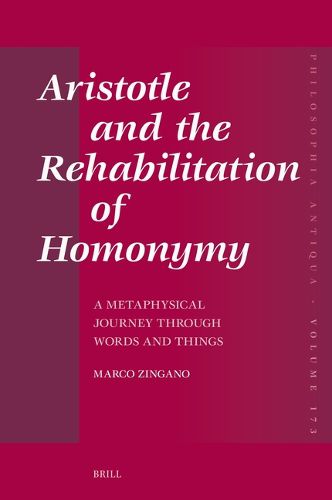Readings Newsletter
Become a Readings Member to make your shopping experience even easier.
Sign in or sign up for free!
You’re not far away from qualifying for FREE standard shipping within Australia
You’ve qualified for FREE standard shipping within Australia
The cart is loading…






Aristotle argued that scientific investigation depends on well-established genera, from which are revealed fundamental properties. However, the core elements of his philosophy are based on non-generic unities. Being is not a genus; it is divided into ten categories or supreme genera. Being serves as the primary concept in metaphysics, also known as first philosophy. Motion, on the other hand, is categorized into four types and is the central concept in physics, or second philosophy. Similarly, the concept of the good can be understood in multiple categories, just like being, and it forms the central idea of practical philosophy. Aristotle must confront the issue of homonymy at the very foundation of his philosophy. The stakes are high, as he believes that it is things, not words, that are homonymous. This study explores the intriguing route Aristotle takes to justify attributing homonymy to things.
$9.00 standard shipping within Australia
FREE standard shipping within Australia for orders over $100.00
Express & International shipping calculated at checkout
Aristotle argued that scientific investigation depends on well-established genera, from which are revealed fundamental properties. However, the core elements of his philosophy are based on non-generic unities. Being is not a genus; it is divided into ten categories or supreme genera. Being serves as the primary concept in metaphysics, also known as first philosophy. Motion, on the other hand, is categorized into four types and is the central concept in physics, or second philosophy. Similarly, the concept of the good can be understood in multiple categories, just like being, and it forms the central idea of practical philosophy. Aristotle must confront the issue of homonymy at the very foundation of his philosophy. The stakes are high, as he believes that it is things, not words, that are homonymous. This study explores the intriguing route Aristotle takes to justify attributing homonymy to things.